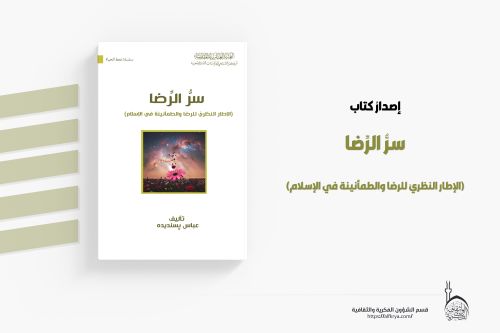

Grammar


Tenses


Present

Present Simple

Present Continuous

Present Perfect

Present Perfect Continuous


Past

Past Continuous

Past Perfect

Past Perfect Continuous

Past Simple


Future

Future Simple

Future Continuous

Future Perfect

Future Perfect Continuous

Passive and Active


Parts Of Speech


Nouns

Countable and uncountable nouns

Verbal nouns

Singular and Plural nouns

Proper nouns

Nouns gender

Nouns definition

Concrete nouns

Abstract nouns

Common nouns

Collective nouns

Definition Of Nouns


Verbs

Stative and dynamic verbs

Finite and nonfinite verbs

To be verbs

Transitive and intransitive verbs

Auxiliary verbs

Modal verbs

Regular and irregular verbs

Action verbs


Adverbs

Relative adverbs

Interrogative adverbs

Adverbs of time

Adverbs of place

Adverbs of reason

Adverbs of quantity

Adverbs of manner

Adverbs of frequency

Adverbs of affirmation


Adjectives

Quantitative adjective

Proper adjective

Possessive adjective

Numeral adjective

Interrogative adjective

Distributive adjective

Descriptive adjective

Demonstrative adjective


Pronouns

Subject pronoun

Relative pronoun

Reflexive pronoun

Reciprocal pronoun

Possessive pronoun

Personal pronoun

Interrogative pronoun

Indefinite pronoun

Emphatic pronoun

Distributive pronoun

Demonstrative pronoun


Pre Position


Preposition by function

Time preposition

Reason preposition

Possession preposition

Place preposition

Phrases preposition

Origin preposition

Measure preposition

Direction preposition

Contrast preposition

Agent preposition


Preposition by construction

Simple preposition

Phrase preposition

Double preposition

Compound preposition


Conjunctions

Subordinating conjunction

Correlative conjunction

Coordinating conjunction

Conjunctive adverbs


Interjections

Express calling interjection


Grammar Rules

Preference

Requests and offers

wishes

Be used to

Some and any

Could have done

Describing people

Giving advices

Possession

Comparative and superlative

Giving Reason

Making Suggestions

Apologizing

Forming questions

Since and for

Directions

Obligation

Adverbials

invitation

Articles

Imaginary condition

Zero conditional

First conditional

Second conditional

Third conditional

Reported speech


Linguistics

Phonetics

Phonology


Semantics


Pragmatics

Linguistics fields

Syntax

Morphology

Semantics

pragmatics

History

Writing

Grammar

Phonetics and Phonology

Semiotics


Reading Comprehension

Elementary

Intermediate

Advanced


Teaching Methods

Teaching Strategies
The origins and propagation of English in South Africa The Cape Colony
المؤلف:
Sean Bowerman
المصدر:
A Handbook Of Varieties Of English Phonology
الجزء والصفحة:
931-53
2024-05-21
1090
The origins and propagation of English in South Africa
The Cape Colony
British ships en route to the East in the 18th century were frequent visitors to the Cape, which was then an invaluable trading and refreshment station under Dutch control. After the French Revolution of 1789–1791, republican France overran the territories of the royalist Netherlands and laid claim to all its colonies and territories, including the strategically positioned Cape colony. Britain perceived this as a threat to (their interests at) the Cape, and in 1795 a British fleet landed at the Cape, having driven back the Dutch defenders, and laid claim to the territory. The Netherlands briefly re-established sovereignty as the Batavian Republic, upon which the Cape was returned; but in 1806 the Napoleonic Wars again saw the Netherlands subjugated to France, and Britain once more launched a successful assault on the Cape, this time proclaiming a colony and installing a governor. The Cape was formally surrendered to Britain in 1814.
Seeking to establish the Cape as a viable colony, Britain launched a settlement programme in which approximately 4500 Britons were landed at Algoa Bay in the eastern Cape in 1820 and 1821. The 1820 Settlers, as they came to be known, were mainly working class people drawn from all over Britain. While their speech was homogenously L1 English, they spoke a large variety of regional dialects, rather than RP. The Settlers were given land for farming, and came to live in close contact with their Dutch neighbors. Within two generations, the regional dialect distinctions had been levelled (Lanham 1982: 325).
In 1822, English was proclaimed as the sole official language of the Cape Colony, supplanting Dutch in almost all public spheres. The British colony expanded rapidly, and Settlers were dogged by conflict with indigenous peoples, into whose territory the colony was now intruding. Moreover, political tensions between Dutch and English settlers continued to mount, leading to the Great Trek of 1834–1836, in which Dutch settlers left the Cape Colony in large numbers to escape British rule and seek autonomy elsewhere. The ‘Trekkers’ pushed northwards and eastwards, establishing three territories: the ‘South African Republic’, which later became known as Transvaal; the Orange River Sovereignty, later Orange Free State, and Natalia. While Dutch became the official language of these territories, a competency in English remained a hallmark of good education (Lanham 1982: 325).















 قسم الشؤون الفكرية يصدر مجموعة قصصية بعنوان (قلوب بلا مأوى)
قسم الشؤون الفكرية يصدر مجموعة قصصية بعنوان (قلوب بلا مأوى) قسم الشؤون الفكرية يصدر مجموعة قصصية بعنوان (قلوب بلا مأوى)
قسم الشؤون الفكرية يصدر مجموعة قصصية بعنوان (قلوب بلا مأوى) قسم الشؤون الفكرية يصدر كتاب (سر الرضا) ضمن سلسلة (نمط الحياة)
قسم الشؤون الفكرية يصدر كتاب (سر الرضا) ضمن سلسلة (نمط الحياة)

















